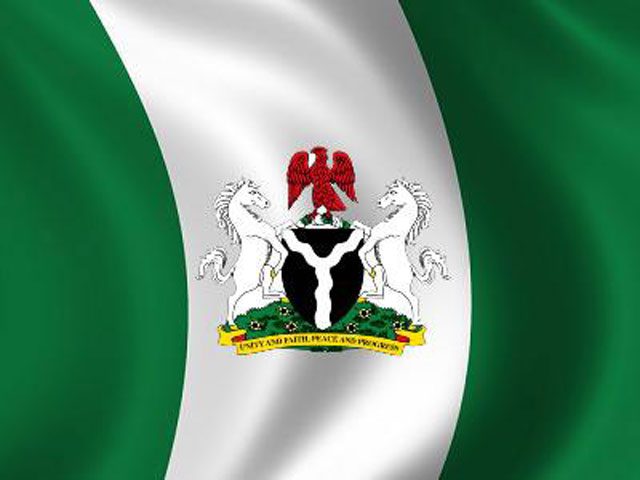Political Issues
UNDERSTANDING THE BEAUTY OF THE WORKINGS OF BEST PRACTICE IN INTERNAL DEMOCRACY.

Internal democracy in political parties (also referred to as intra-party democracy) refers to the level and methods of including party members in the decision making and deliberations within the party structure. Internal democracy is usually known to nurture citizens’ political competences and/or producing more capable representatives which in turn ensures that the party produces better policies and political programmes.
Internal democracy is all about popular participation of party members in the party leadership process. The big question about Nigeria internal democratic process is whether the card carrying members are allowed to actively participate in the elections of party Executives and Delegates? Usually the crises prevailing in the parties clearly answered this question in the negative. Reports have shown that majority of the members are shut out in the making of their leaders.
If this be the trend, it is rational to reason whether there is democratic practice in Nigeria, since the parties are undemocratic in the process of electing their leadership.
Accordingly, a teacher cannot teach from the angle of ignorance. Therefore, if democracy must thrive in Nigeria, political parties need to go by the rule of law strictly, operating according to democratic best practice as obtained elsewhere in advanced democracies without any form of prejudice. Selection, imposition or Anointment can never be an acceptable norm in the democratic best practice even if enshrined in the party constitution. No practicing democracy should imbibe this aberration and call it popular choice. Nigeria’s democracy cannot operate in isolation of global best practice. As a matter of importance, it is crucial to have a clinical insight into what internal democracy is, from the perspectives of advanced democracies. The idea is to attune to minimum best practice as a takeoff platform. ESSENTIALLY, THE CONCEPT OF INTERNAL DEMOCRACY MUST HAVE ITS ROOT IN THE MINDSET OF SELFLESS SERVICE, ARDENT BELIEF IN THE CORPORATE EXISTENCE OF THE COUNTRY AND UNWAVERING NATIONAL LOVE. With this very necessary adjustment, the character being formed here is of the country first, second and last in all aspects of our political life. On this pedestal, therefore, we peep into the window of advance democracies, to abreast ourselves with the workings of best practice of internal democracy. In countries like United States, United Kingdom, China (although not practicing democracy, their process of leadership reflects internal democracy in action), and Indonesia in recent decades, every politician is properly schooled in patriotism and therefore selfish political suasions take a remote position when a politician offers himself to the electorates. This is the reason their party nomination processes are very critical of the candidates, who open themselves to critical examinations into, for instance, their childhood, social leanings, financial dealings and previous service to the nation, among other considerations. One often witnessed candidates with tainted economic or social integrity voluntarily falling out of the race before the heat is on. The entire process is open to critical appraisal. Therefore, a politician who offers himself for any form of leadership must also open himself for microscopic criticism of his moral, social, economic and ideological pedigree.
More beautiful would be that politician whom the people sought for his leadership because of the recognition of his pedigree in selfless service. He is that person with independent mind yet can be accessible, humble and visionary, patriotic and truly democratic, forthright and upright.
In Nigeria, PDP is the party in power and so is on the hot seat. The present crises both within the party and in the country generally may be traced to the breaches of acceptable global standard of internal democracy in the party. The echoes of its 2012 national convention, where the leadership of the party were not only selected but anointed and forced on members against their popular choices, have given rise to the current leadership impasse and the attendant crises in the country.
Taking a cursory inventory of the PDP national convention since inception, the leadership it produces, their stay and exit from office. Going by the PDP constitution, the party leadership must be product of national convention through delegates votes cast and have duration of four years stay in office. But because of compromise of best practice during conventions for self-serving interest, none but only one national party chairman stay his four years term. (And this is not because his emergence is any different but because he was a garrison commander and the serving President a General). Today, the way they come the way they are jettison. Anointed at the beginning and discarded midway.
In the interest of national unity and peace, following the standard practice in advanced democracies, the current leadership of the ruling party, having concurred within the leadership itself that the process that brought them was imposition, as also affirmed by the current BOT chairman, should consider the patriotic option of resignation. This action would be a clear deterrent to politics of imposition and may give birth to the best practice of internal democracy in Nigeria.
An entity like Nigeria cannot be a beacon of democracy in Africa when it is consistently shadowed by undemocratic institutions, policies and leadership. Politics should essentially bequeath to the people a natural tranquil process if sincerity and true selfless service is adopted and not otherwise. Even though politics is all about interest, if treated with decorum it would make the difference.
We are propagating a renewed ideology of selfless service and ardent belief in the corporate existence of our ambitious great country. Be that as it may, our political leaders must have an unwavering love and passion for our populace like in the advanced democracies where respect for the rights of the people is sanctified by the immortal constitutional phrase WE THE PEOPLE…!



















